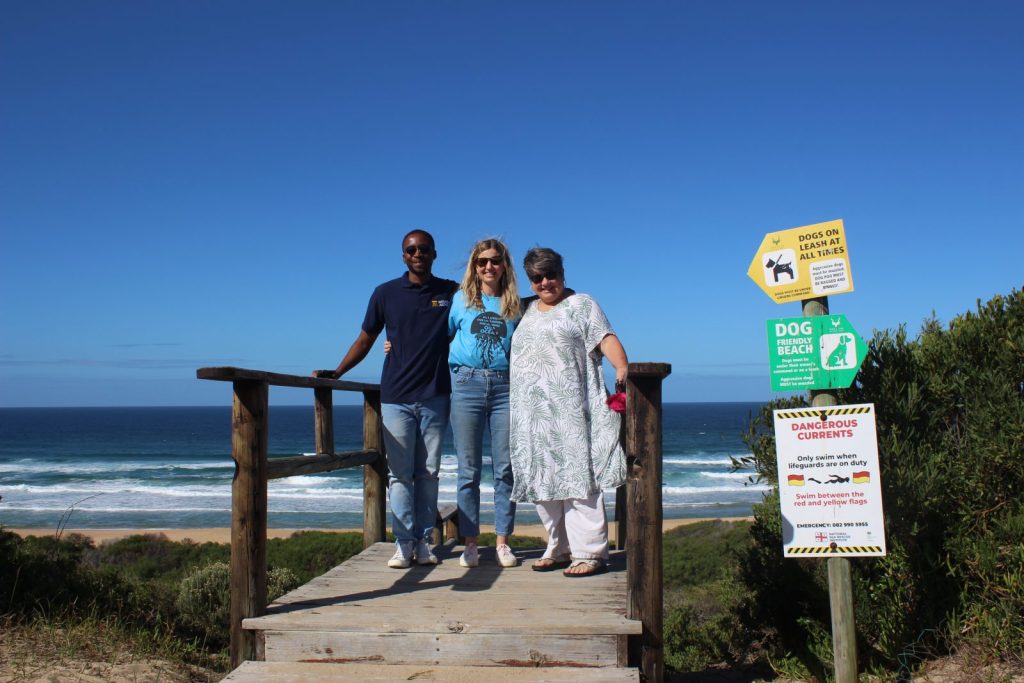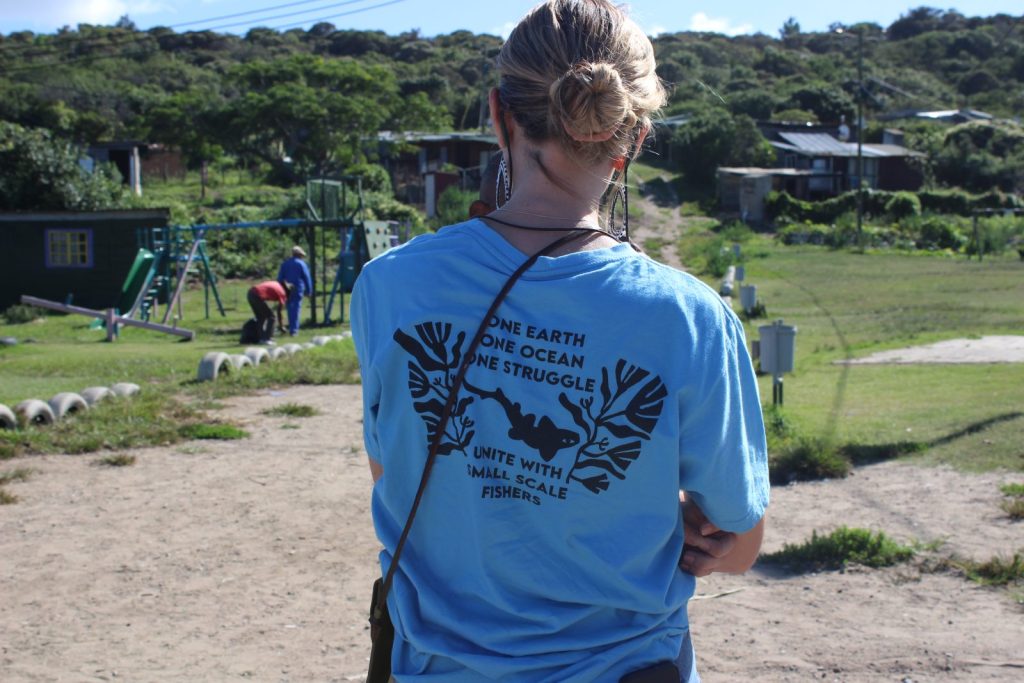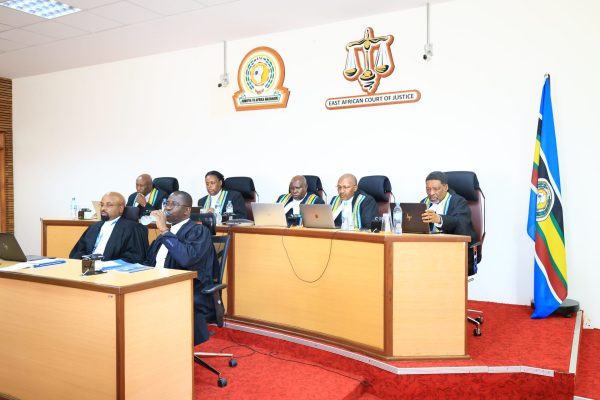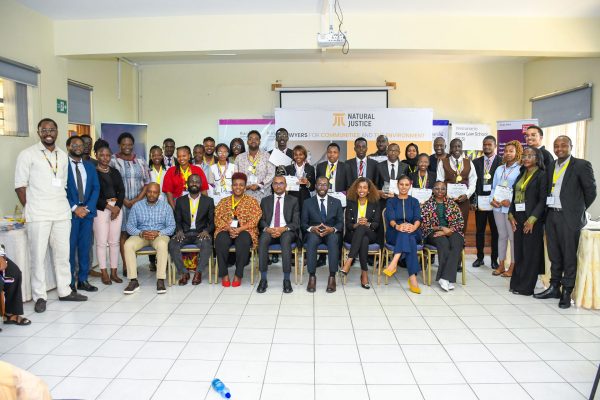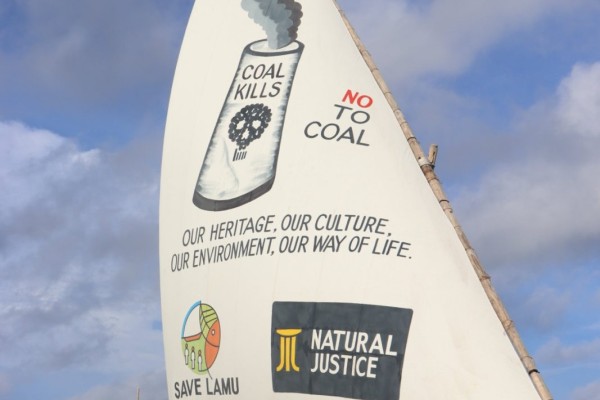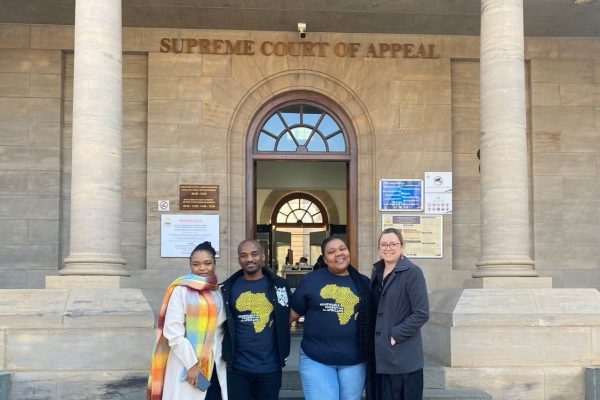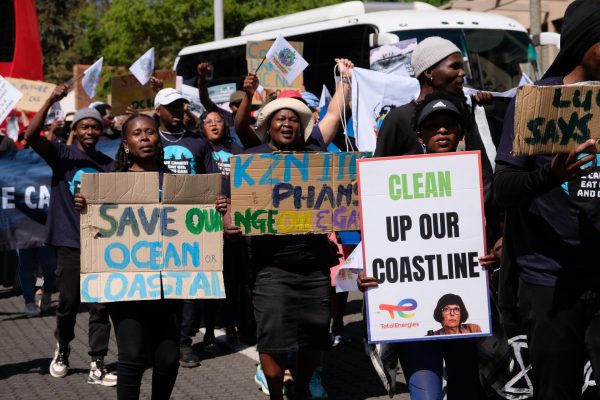South Africa’s Coastal Communities Want a Real Say in Oil and Gas Projects
In March this year, Lebohang Dube, Natural Justice Programme Officer in the Standing with Communities programme, visited communities along South Africa’s southern coast. A newcomer to the energy sector, Main Street (Pty) Ltd, initiated an Environmental Impact Assessment Process for oil and gas developments in block 11B/12 B and 9, offshore on the southern coast. Natural Justice’s team engaged with affected communities facing the implications of oil and gas exploration, and to make locals aware of the developments near Mossel Bay and how they can get involved. Lebohang shared some reflections.
Two months in as a member of the Natural Justice ‘Standing with Communities’ team, this was my first community engagement, and I have a story to tell. My journey began as I landed in Outeniqua (George), a small city on the coastal stretch of South Africa’s Garden Route, on a quiet Tuesday afternoon. I was met by colleagues and together drove to the village of Wilderness. Over a dinner of delicious tuna bake and fresh salad cooked by our local contact and activist, Linda Arket from The Green Connection, we mapped out the days ahead. We would be at the heart of communities grappling with the looming threat of offshore oil and gas exploration.
The next morning, we left the quaint hotel building nestled in Wilderness’ quintessential tourist hub and headed to Smutsville, a township on the outskirts of Knysna. The drive along the N2 reflected contrasts, where lush forests and vineyards gave way to glimpses of informal settlements tucked behind the postcard scenery. The Garden Route’s mostly empty luxury holiday homes stood in stark contrast to the lived reality of the fishing communities we had come to support.
Protecting generations of fishers in Smutsville
The typical narrow streets lined with apartheid-era matchbox houses and shacks met us, already telling a story of the realities of poverty and unemployment, and the resilience of communities grappling with this. We gathered at the Sizamile Community Centre, a community hall adorned with vibrant mosaics, where the room buzzed with both scepticism and hope.
The discussions were attended by mainly senior members of the fishing community, who, above all, expressed concern about the potential loss of their livelihoods and the death of a resilient fishing culture passed down through generations. Currently, through a small-scale fishing co-operative, some of the local fishers are still able to sustain their livelihoods.
Most participants had not heard of, nor had they been consulted about Main Street’s Draft Scoping Report, a step in the process for obtaining environmental authorisation, for Blocks 11B/12B and 9, situated offshore in the Outeniqua Basin (about 80km off the Mossel Bay coast). The exploration activities, which include surveys, could have impacts on marine ecosystems, local fishing communities and the livelihoods of communities that depend on the ocean, from Mossel Bay to Gqeberha. “They only come when they need something,” an elder said, echoing decades of broken promises.
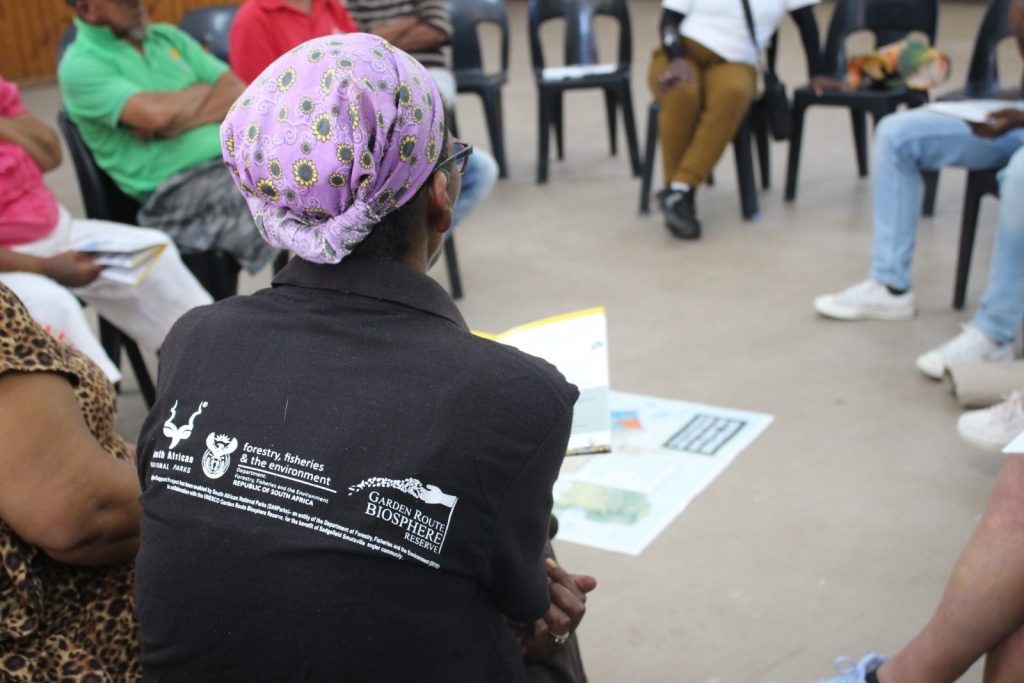
“They only come when they need something…“
For generations, fishing has fed families in the community. Participants said that they fear the impact of survey activities that could scatter fish stocks, compounding existing restrictions from Marine Protected Areas (MPAs) and private coastal developments in the area.
A small group of young fishers leaned in, asking, “How do we challenge this legally?” A question we hoped to clarify by encouraging active participation, community mobilisation and continued engagements with the development. Their energy was a reminder to an older meeting participant, who lamented that this was not just about preserving the past, but about claiming the future.
Leaving Smutsville, I thought about the beauty the ocean. The same waves that draw visitors to Wilderness’ lagoons, are the lifeline for others.
Kranshoek’s strength lies in its unity
From Smutsville, we wound through coastal roads to Kranshoek, a fishing community near Plettenberg Bay, the Bay of the Keurbooms. In this community, the Khoi and San heritage is palpable, with the community’s connection to the ocean woven into daily life. The meeting, held in a local church, was packed with intergenerational leaders, including community elders, women fishers from Knysna and young people, all united in their resolve.
Fishers shared how commercial vessels shadow their boats, exploiting their Indigenous Knowledge Systems to locate fish. “They steal our wisdom, then call it progress,” one woman said. This engagement reflected centuries of frustration over encroachment in the area. This community, drawing from the spirit of ||Ammaqua, sought to resist any development that excludes their interests as indigenous peoples in the area.
“They steal our wisdom, then call it progress…”
The oil and gas push in South Africa feels like history repeating; outsiders extracting wealth while locals bear the costs. Exploration would be another lock on the ocean’s gate. “This is another land grab,” a leader asserted.
Kranshoek’s strength lies in its unity. I drew energy from the resolve of the community and their continued resiliency.
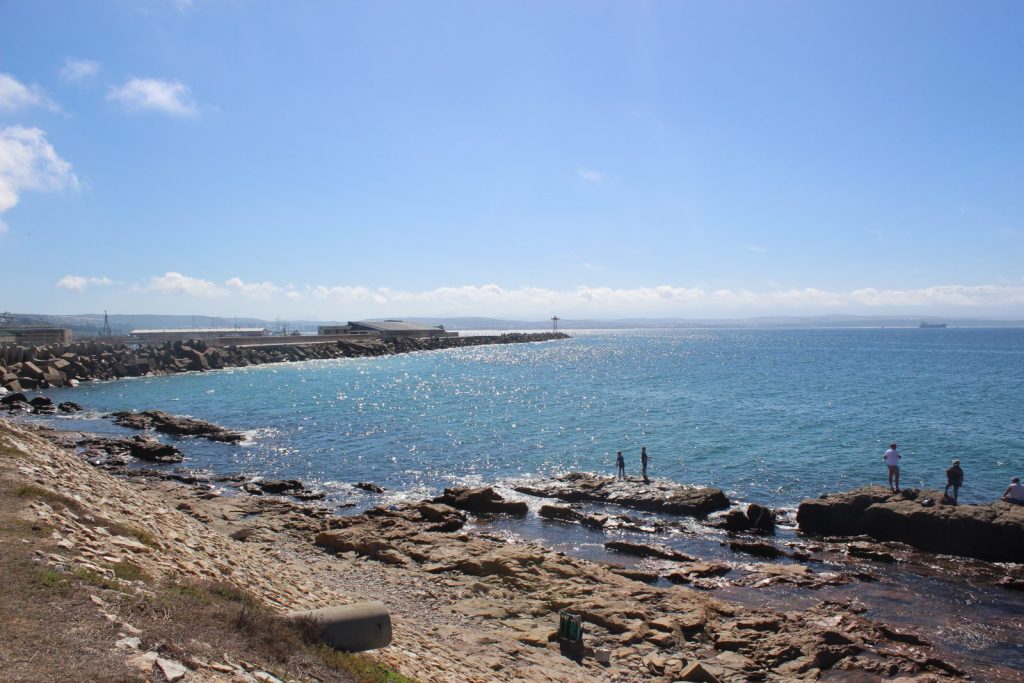
KwaNonqaba brings a different view
Mossel Bay’s history with extraction and dispossession, including oil and gas, loomed large. PetroSA, a state-own company, has shaped this region’s economy for decades and in KwaNonqaba, a township where unemployment grips the reality of many young, the debate was not just about the environment – it was about survival.
Unlike the earlier fishing communities we met, the discussions here were about immediate threats to livelihoods, versus the threats posed by the oil and gas exploration. This community comprised of a majority young, unemployed black youth. It was not surprising that for many, environmental concerns felt secondary to empty stomachs. “Silambile, bhuti”, a young man looked me straight in the eyes, telling me that survival was a priority for this community of labourers who had historically been linked to PetroSA activities in the area. Others warned of PetroSA’s legacy of air pollution linked to respiratory illnesses, corporate lies, and political meddling for years.
“Silambile, bhuti” [we are hungry, brother]
There appeared to be distrust and division in the community. The room crackled with tension, as pro versus anti-oil and gas development sentiments met, with both perspectives reflecting lived experiences. A community activist also spoke of threats faced for speaking, but remained resolute that corporate greed will not win.
The Blocks 11B/12B and 9 is not just coordinates on a map, but also feeding grounds for whales, highways for fish, and the heartbeat of coastal livelihoods. From Smutsville to KwaNonqaba, a common theme was distrust. Corporate and development consultations have failed these communities before.
While the ocean “economy” can be both a threat (pollution, displacement) and a promise (food, culture, identity), it bears historical scars, a source of hope and survival. The ocean is a continued battle ground for indigenous people and local communities in the area.
I remain encouraged by the women fishers, young community-based activists and elders, each bringing unique fire to the ongoing fight for true people-centric development and environmental justice.
The next steps are to support communities to meaningfully engage in the ongoing Main Street Block 11B/12B and 9 Environmental Impact Assessment process. Having established good relationships with these communities, we will continue to support their struggles and bring about accurate and relevant information to empower meaningful community participation.
As my flight departs, my final thoughts are that these engagements were beyond the question of oil and gas in the region, but about who they were about people – their stories, their resilience and the right to a say in the future of their ancestral land.
“The sea remembers. So do we.”
Thank you to Linda and the Green Connection for hosting and introducing us to the beautiful people of Outeniqua, and to every community member who shared their truth. The work continues!
